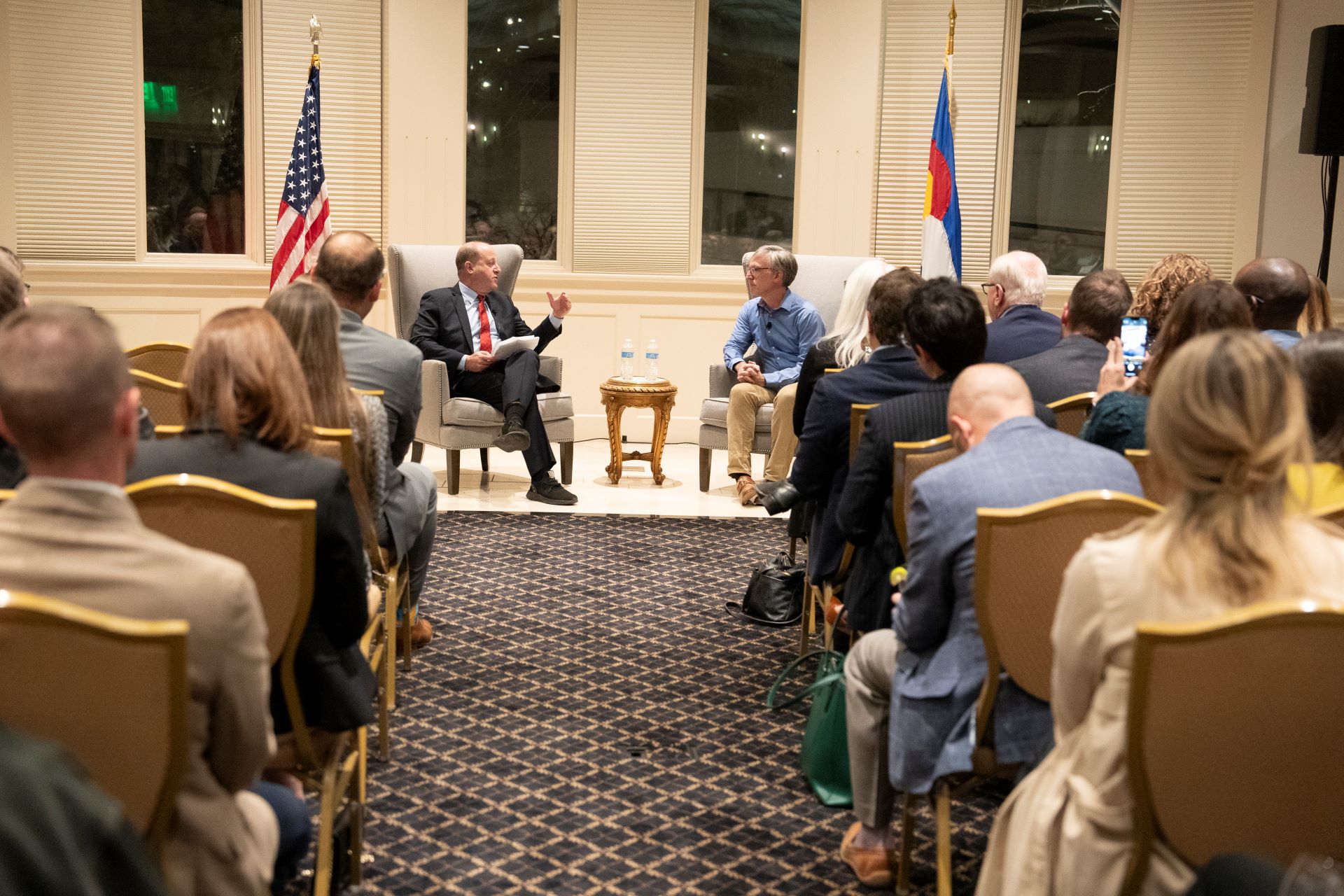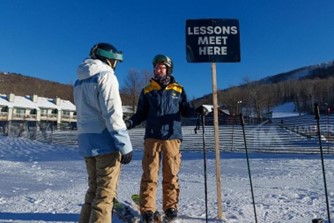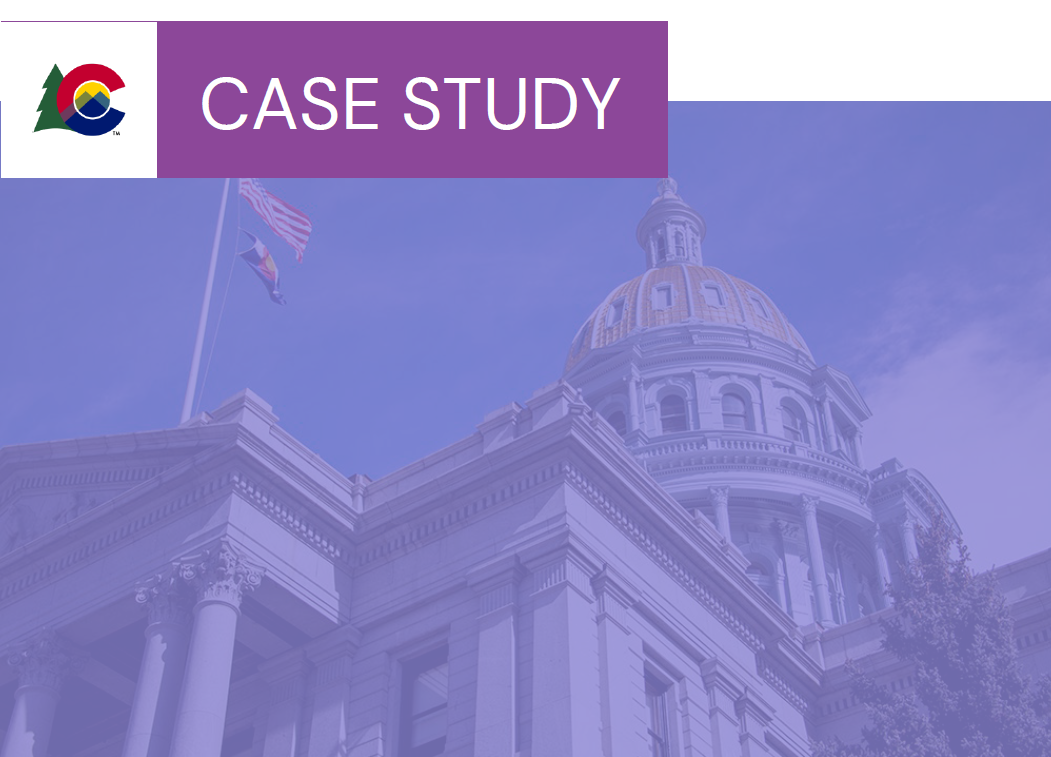On Monday, April 24 to Wednesday, April 26, NGA convened, in partnership with Nevada Governor Joe Lombardo’s Office of Science Innovation and Technology, its Broadband Leaders Workshop in Las Vegas. The Workshop brought together over 60 Governors’ Broadband Advisors and Broadband Office Directors from 41 states and territories, federal leaders from several agencies, including Department of Commerce, the National Telecommunications and Information Agency (NTIA), U.S. Department of Treasury, U.S. Department of Agriculture (USDA), the Federal Communications Commission (FCC), the Federal Permitting Improvement Steering Council (FPISC), and the Bureau of Land Management, as well as broadband providers, nonprofits, and NGA Partners to participate in this three day gathering.
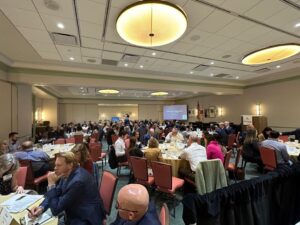
The Workshop provided Governors’ Broadband Advisors and Office Directors a forum to share best practices, discuss programs and program guidance with federal leaders, and hear from practitioners on current issues related to broadband deployment, affordability, and meaningful adoption. This was in the context of record investment in high-speed internet by Governors and the impending allocation of unprecedent funding for broadband infrastructure and digital equity from the Infrastructure Investment and Jobs Act (IIJA).
Following consultation with broadband advisors in the lead up to the event, NGA focused much of the Workshop on the requirements of the Initial Proposal—a key document to be submitted by states and territories to receive funding from the IIJA’s $42 billion Broadband Access, Equity and Deployment (BEAD) program. The Workshop also explored the intersection between IIJA programs and other broadband funding streams, as well as cross-cutting deployment issues such as workforce and permitting. The convening was structured around curated small group discussions on critical issues, which provided a space for open dialogue and an opportunity for state and territory leaders to come away with concrete actions for the year ahead.
The first full day of the Workshop on Tuesday, April 25 focused on the implementation details of the main broadband federal funding opportunities open to states and territories. During the morning, attendees heard from federal leaders from the U.S. Department of Commerce, NTIA, U.S. Department of the Treasury and USDA on the Capital Projects Fund, Rural eConnectivity Program and the BEAD program. This was followed by small roundtable discussions on these programs, with an emphasis on leveraging and stretching federal funds to maximize broadband deployment across states and territories. Specifically, attendees discussed issues such as structuring the procurement process for efficient last mile broadband deployment, scoring and prioritizing private sector bids that are received, and setting the “extremely high-cost per location threshold” above which technology other than fiber to the home can be adopted. These discussions were interspersed with short presentations from industry and state representatives on different technological and other solutions to deployment.
During the afternoon, the discussion turned to the critical issues of affordability and encouraging meaningful adoption of broadband services. Angela Thi Bennett, Digital Equity Director at NTIA, and Maureen Neighbors, Alabama Digital Expansion Division Chief, spoke about local engagement to understand community perspectives, the role of the Affordable Connectivity Program and state affordability initiatives in encouraging uptake, and Digital Equity Act program requirements. This was followed by in-depth tabletop group discussions, which touched on these and other community engagement, affordability, digital literacy and adoption challenges. Following these discussions, NGA hosted a state, territory and federal-only session on the broadband map and the details of NTIA’s recently released guidance for the state/territory challenge process.
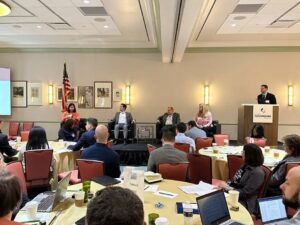
Attendees gathered the morning of Wednesday, April 26 to dive into critical issues around the practical delivery of broadband infrastructure. The first part of the day homed in on permitting opportunities and challenges to last mile and middle mile broadband deployment. Participants first heard from the Christine Harada, Executive Director of the Federal Permitting Improvement Steering Council on the FAST-41 program to enhance coordination and transparency across federal agencies, representatives from the Bureau of Land Management who discussed working with the agency to progress applications, and Lynne Yocom, Fiber Optics Director, Utah Department of Transportation, who discussed the efficient delivery of fiber leveraging highway rights of way. These presentations were followed by a Q&A session with the audience on permitting reform and challenges, and a discussion of best practices in states and territories.
The next session of the day dived into another essential delivery issue: broadband workforce. Kevin Gallagher, Senior Advisor to the Secretary with U.S. Department of Commerce, led a state panel who shared their experiences with workforce development to meet current and future labor requirements. This panel discussed the importance of engaging and partnering with higher education institutions, industry and non-profits to inform and develop solutions, the outsized impact that apprenticeship programs can have, and funding options to help states and territories move the needle on workforce. This was followed by audience Q&A and room discussion. The event wrapped up on Wednesday afternoon with state, territory and federal-only discussion time on challenges and next steps.
NGA would like to thank Nevada Governor Joe Lombardo’s office for hosting the workshop, as well as representatives from the other 40 other states and territories, federal leaders and NGA Partner representatives for their commitment and participation and for making it such a well-rounded and successful event.
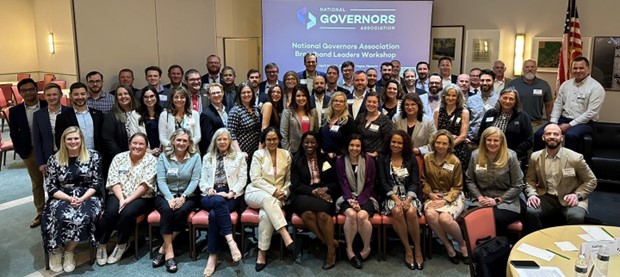
Additional Resources
NGA maintains a public Broadband Resources webpage, which provides the latest information on broadband programs and NGA resources to support Governors’ broadband Advisors, Office Directors and other interested parties. NGA also maintains public implementation resources pages for the bipartisan Infrastructure Investment and Jobs Act, the Inflation Reduction Act, and the bipartisan CHIPS and Science Act, which can be accessed here. These resource pages are updated weekly to provide the latest federal updates, including notices of funding opportunities, requests for information and guidelines, and the latest association and NGA Partner resources.

